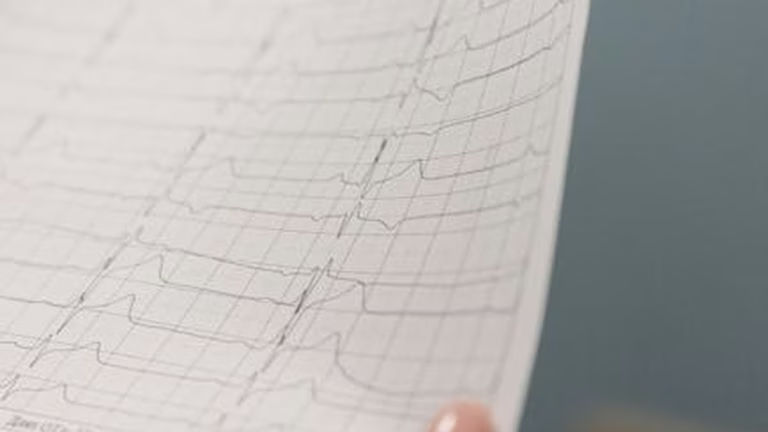Sleep Apnea and Cognitive Function: Latest Research and Treatment Options
Sleep apnea, a common sleep disorder characterized by pauses in breathing during sleep, affects millions worldwide. While its impact on physical health, such as cardiovascular issues, is well-documented, the connection between sleep apnea and cognitive function is gaining increasing attention. This article delves into the latest research on this link and explores effective treatment options to mitigate cognitive decline associated with sleep apnea.
The Connection Between Sleep Apnea and Cognitive Function
Sleep apnea disrupts the normal sleep cycle, leading to frequent awakenings and reduced oxygen levels in the blood (hypoxia). These disruptions can significantly impact brain function, affecting various cognitive domains.
How Sleep Apnea Affects the Brain
Several mechanisms contribute to the cognitive impairments observed in individuals with sleep apnea:
- Hypoxia: Repeated episodes of low oxygen levels can damage brain cells, particularly in regions responsible for memory and executive function.
- Sleep Fragmentation: Frequent awakenings prevent the brain from entering deep, restorative sleep, which is crucial for memory consolidation and cognitive processing.
- Inflammation: Sleep apnea can trigger systemic inflammation, which can negatively impact brain health and cognitive function.
Cognitive Impairments Associated with Sleep Apnea
Research has linked sleep apnea to a range of cognitive deficits, including:
Memory Problems
Individuals with sleep apnea often experience difficulties with both short-term and long-term memory. They may struggle to remember recent events, learn new information, or recall previously learned material. For example, someone with sleep apnea might forget where they placed their keys or have trouble remembering details from a conversation.
Attention and Concentration Deficits
Sleep apnea can impair attention span and concentration, making it difficult to focus on tasks, maintain attention, and avoid distractions. This can affect performance at work, school, and in daily activities. Imagine trying to complete a complex project at work while constantly feeling drowsy and struggling to concentrate – this is a common experience for those with untreated sleep apnea.
Executive Function Impairment
Executive functions, such as planning, problem-solving, and decision-making, can also be affected by sleep apnea. Individuals may have difficulty organizing tasks, making sound judgments, and adapting to changing situations. This can manifest as difficulty managing finances, planning a trip, or solving complex problems.
Increased Risk of Dementia
Emerging research suggests a potential link between untreated sleep apnea and an increased risk of developing dementia, including Alzheimer’s disease. While more research is needed, the chronic hypoxia and inflammation associated with sleep apnea may contribute to the neurodegenerative processes underlying dementia.
Latest Research on Sleep Apnea and Cognitive Function
Recent studies continue to shed light on the specific mechanisms by which sleep apnea impacts cognitive function and the potential benefits of treatment. For example, studies using brain imaging techniques have shown that individuals with sleep apnea have reduced grey matter volume in brain regions critical for memory and executive function. Furthermore, research has demonstrated that effective treatment of sleep apnea can improve cognitive performance and potentially slow down cognitive decline.
Treatment Options for Sleep Apnea and Cognitive Improvement
Fortunately, effective treatment options are available to manage sleep apnea and mitigate its impact on cognitive function.
Continuous Positive Airway Pressure (CPAP) Therapy
CPAP therapy is the most common and effective treatment for sleep apnea. It involves wearing a mask during sleep that delivers pressurized air to keep the airway open, preventing pauses in breathing. Studies have shown that CPAP therapy can improve cognitive function, including memory, attention, and executive function, in individuals with sleep apnea.
Oral Appliances
Oral appliances, such as mandibular advancement devices (MADs), are custom-fitted mouthpieces that help keep the airway open by repositioning the lower jaw and tongue. These appliances can be an effective alternative to CPAP therapy for individuals with mild to moderate sleep apnea and can also improve cognitive function.
Lifestyle Modifications
Certain lifestyle changes can also help manage sleep apnea and improve cognitive function:
- Weight Loss: Obesity is a major risk factor for sleep apnea, so weight loss can significantly reduce the severity of the condition.
- Avoiding Alcohol and Sedatives: Alcohol and sedatives can relax the throat muscles, making sleep apnea worse.
- Sleeping on Your Side: Sleeping on your back can worsen sleep apnea, so sleeping on your side is often recommended.
Surgery
In some cases, surgery may be an option to correct anatomical abnormalities that contribute to sleep apnea. However, surgery is typically reserved for individuals who have not responded to other treatments.
Conclusion
The link between sleep apnea and cognitive function is undeniable. Untreated sleep apnea can lead to a range of cognitive impairments, affecting memory, attention, executive function, and potentially increasing the risk of dementia. Early diagnosis and effective treatment, such as CPAP therapy, oral appliances, and lifestyle modifications, are crucial for mitigating these cognitive effects and improving overall brain health. If you suspect you have sleep apnea, it’s essential to consult with a healthcare professional for diagnosis and treatment.






